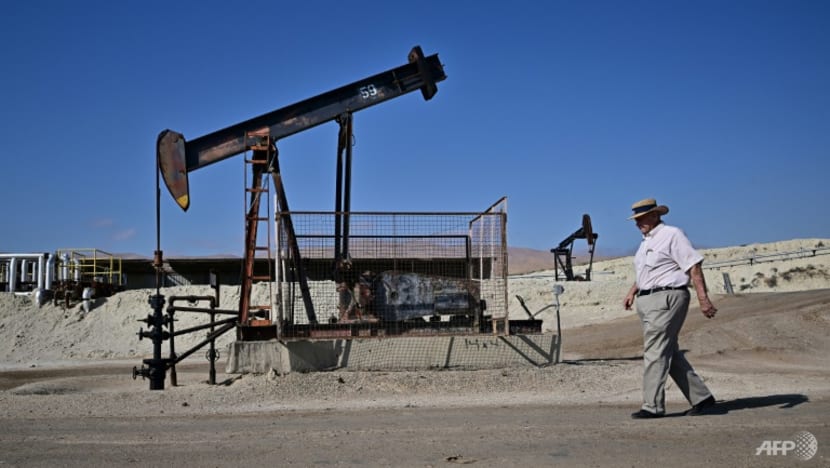California oil towns struggle under strict drilling regulations
A small oil town has lost more than a quarter of its population since 2015, while a third of its residents live below the poverty line.


This audio is generated by an AI tool.
CALIFORNIA: The small town of Taft in the United States faces a paradox: It is struggling due to California’s strict oil drilling regulations, but oil demand worldwide hit a peak last year.
Since 2015, Taft has lost more than a quarter of its population. Almost a third live below the poverty line – more than double the national average.
California is the seventh-biggest oil producer among US states, with a huge presence of oil and gas companies.
But as the state seeks to become less dependent on fossil fuel, oil regions there have been left with an uncertain future.
WILL TAFT BECOME OBSOLETE?
Taft, one of the few remaining towns in the US that exists exclusively because of nearby oil reserves, is situated in Kern County – a major petroleum and natural gas production region responsible for about 70 per cent of California’s oil.
Signs of its drilling history are everywhere in Taft, from a “Driller Tradition” mural splashed on the exterior wall of its local high school to a bronze monument honouring the town’s oil workers.
As California moves to get rid of oil drilling, the clock is ticking to try and keep the county from becoming an area of dying oil towns.
The state’s governor Gavin Newsom, a Democrat with presidential ambition, wants to phase out oil drilling completely by 2045.
New drilling permits have steadily declined since Newsom took office in 2019. California has made such permits harder to come by, among other restrictions, leading to a decades-long decline in oil production.
The move has hit the economy hard, especially in towns like Taft.
Lisa Fearon, a lifelong Taft resident, told CNA: “I was born and raised here and in the 80s, it was booming. I mean, you made the money, and now, you could barely ever see any work rigs or anything. So, yeah, it has declined a lot.”
Taft’s mayor Dave Noerr said that production of oil and gas should only stop when the world does not require such commodities any longer.
GREEN ACTIVISTS PUSH FOR CLEANER AIR
For environmental justice advocates, however, the reckoning is long overdue.
California’s Central Valley has some of the worst air quality in the country, with major highways running through the region and a large agricultural sector.
“We don't have to live this way,” said Maricruz Ramirez, a community organiser from the Center on Race, Poverty and the Environment, a national environmental justice organisation based in California’s San Joaquin Valley.
“We can have clean air and we should have clean air … Oil doesn’t have to be our way of life,” she added.
As the tide continues to turn against fossil fuels, the oil industry may soon be a relic in California, leaving many to wonder if oil towns like Taft can keep on going.

















